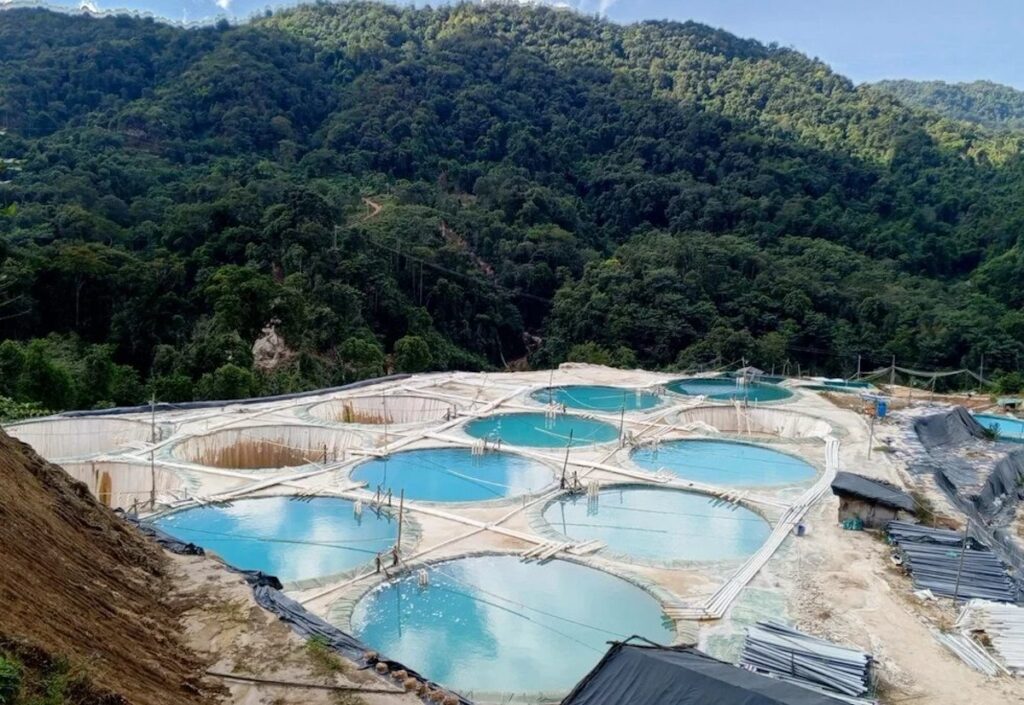
BANGKOK – President Donald Trump has expressed frustration over China’s dominance in the processing of rare earth elements, crucial for manufacturing strategic-use magnets. These magnets are vital for high-tech military and aerospace equipment, including US warplanes that counter China’s growing influence.
China is working to solidify its near-monopoly on military-grade processed dysprosium, terbium, and other rare earth elements by securing control over rebel-held mines in Myanmar, a country embroiled in conflict. This move is seen as a strategic effort to bolster its support for Myanmar’s military dictatorship, installed after a coup.
“China intelligently went in and they sort of took a monopoly of the world’s magnets,” Trump stated on August 25, emphasizing the national security implications. “It’ll take us probably a year to have them. We’re heavy into the world of magnets now, only from a national security standpoint.”
US Diplomatic Efforts and Challenges
The US Embassy in Myanmar’s Chargé d’Affaires, Susan Stevenson, recently visited Myitkyina, the capital of Kachin state, from August 11 to 13. However, she did not engage with the Kachin Independence Army (KIA) insurgents who control the rare earth mines in the region.
“[Stevenson] did not engage with KIA officials or members of the military regime during her visit,” an embassy spokesperson noted. The visit was described as part of Stevenson’s efforts to understand local socio-economic conditions.
Despite these efforts, the US remains excluded from accessing Myanmar’s raw rare earth supplies, which China currently dominates, processing 90% of the world’s rare earth elements. “Myanmar is now the single largest source of heavy rare earth elements globally,” stated the environmental watchdog Global Witness.
China’s Strategic Moves in Myanmar
China has been extracting rare earths from Myanmar for several years, but its control weakened in 2024 when insurgents seized some mines. “Most of the HREE (heavy rare earth elements) from Myanmar originate from Kachin state, on the border with China,” Global Witness reported.
Beijing’s strategy involves using financial investments and political influence to pacify insurgents in these resource-rich regions. Chinese energy firms supply various forms of power to Myanmar, easing its fuel costs and strengthening ties.
However, the Kachin insurgents now control the most valuable rare earth mines, forcing China to negotiate directly with them. This situation could lead to a more balanced distribution of profits between the rebels and Myanmar’s military regime if a ceasefire is reached.
Environmental and Geopolitical Implications
Mining operations in Myanmar have significant environmental impacts, with toxic chemicals like ammonium nitrate used in extraction processes. This has led to severe pollution of local rivers, affecting communities in Myanmar and neighboring Thailand.
Rare earths, including 17 chemically similar elements, are challenging to extract and process, making them valuable yet environmentally costly. China’s dominance in this sector poses strategic challenges for the US, which relies heavily on foreign sources for these critical materials.
“Critical minerals, including rare earth elements, are essential for national security and economic resilience,” the White House stated in April.
The US’s dependence on adversarial nations for these materials exposes it to potential supply chain disruptions and economic coercion, a concern echoed by experts and policymakers.
Future Prospects and Strategic Considerations
Relations between Washington and Naypyitaw remain strained following Myanmar’s 2021 coup, which ousted an elected civilian government. However, there are signs of potential diplomatic shifts. In July, Trump communicated with Myanmar’s military leader, suggesting a possible easing of economic sanctions.
Improved US-Myanmar relations could attract international investment and counterbalance the influence of ethnic and pro-democracy rebels. However, the US must navigate complex geopolitical dynamics, including China’s entrenched presence and Myanmar’s internal conflicts.
The situation in Myanmar highlights the broader geopolitical struggle for control over critical resources, with implications for global supply chains and national security. As the US seeks to reduce its dependence on foreign rare earths, it faces significant challenges in securing alternative sources and establishing domestic processing capabilities.






